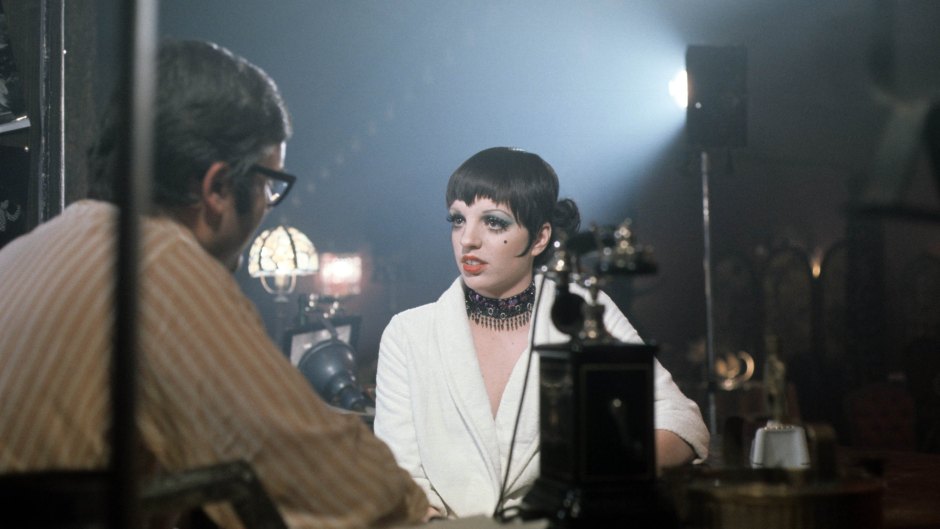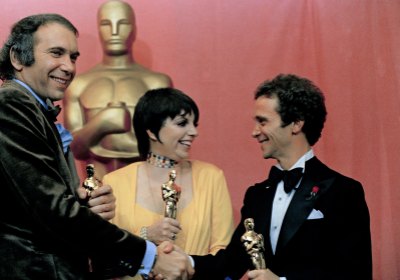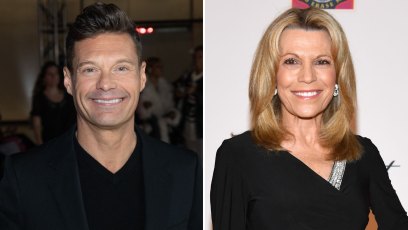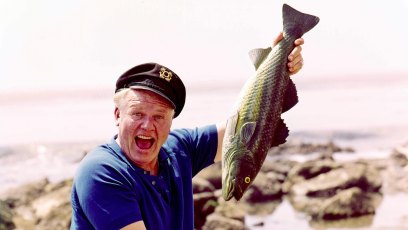
ITV/Shutterstock
Stars Share Behind-the-Scenes Secrets From the Oscar-Winning Musical ‘Cabaret’: Liza Was ‘Phenomenal’
When the tea sandwich being passed to Liza Minnelli in Cabaret accidentally slid off the plate and hit her in the bosom, she didn’t miss a beat. “Thank you … so much,” she drawled in character, pausing to pick it up and take a bite.
Fifty years later, her costar Michael York still marvels at how naturally Liza inhabited the skin of the Kit Kat Club’s libertine singer Sally Bowles. “She was 25 at the time,” Michael, 79, exclusively tells Closer Weekly, on newsstands now. “She realized this was her big opportunity and grabbed it with both hands.”
Released in February 1972, Cabaret, a gritty, taboo-smashing modern musical, would earn eight Oscars, including honors for Liza, director Bob Fosse and Joel Grey as the Master of Ceremonies.
“Liza was like my little sister — and she still is,” Joel tells Closer. “We would get up early and drive to the set together. She’d fall asleep on my shoulder.”
It wasn’t all smooth sailing though. Joel, 89, already had a Tony on his shelf from playing the emcee on Broadway, yet Fosse resisted casting him in the film. “My instinct was that [Fosse] was a performer, a really good one. Maybe somewhere he secretly thought he could do it?” says Joel, whose memoir Master of Ceremonies was released in 2016.

Once the production started rolling — with Joel on board at a producer’s insistence — it’s likely the unspoken tension between the men benefited Joel’s menacing performance. “I never flinched from how dark he could be,” he says of his “irreverent and just disgusting” character.
The contrast to the emcee’s malevolence is Michael’s Brian Roberts, a British doctoral candidate and the target of Sally’s affections. “Liza had this phenomenal energy, so I considered it my prime duty to pull her down off the ceiling,” laughs Michael, who recounted his life story in the 1992 memoir Accidentally on Purpose.
As in the scene with the sandwich, the actors were encouraged to improvise together. “Bob was always having us try this or that. The only thing he insisted on was that we all went to see the dailies,” Michael recalls, explaining that watching the day’s shoot made it clear what was working. “They sent us to Germany to make this extraordinary film,” Liza has said. “And they left Bob Fosse alone.”
Early in their collaboration, Fosse asked Liza how she felt about nudity. “He was provocative from the get-go,” she admitted. Sally kept her clothes on, but the film didn’t shy away from exploring bisexuality, abortion, anti-Semitism and fascism from a 1970s standpoint. Cabaret “is a creature of its time,” says Michael. “It could only go so far. Bob knew how to stop just short of being offensive.”
He also knew how to create a mood. The scene when the beer garden patrons rise to sing “Tomorrow Belongs to Me” still causes chills. “It is so prescient, this anthem to the coming Nazism,” says Michael. “I say as we leave the garden, ‘Do you still think you can control it?’ And, of course, the house soon came down.”
Viewers today thrill at the spectacle of Cabaret’s depiction of the Weimar Republic’s Berlin, but it’s the rising tide of fascism surrounding these unforgettable characters that continue to make it relevant. “It’s a cautionary tale,” says Joel. “It’s happening in other places all the time. And it could happen tomorrow.”
— Louise A. Barile, with reporting by Amanda Champagne-Meadows
For more on this story, pick up the latest issue of Closer magazine, on newsstands now.







































